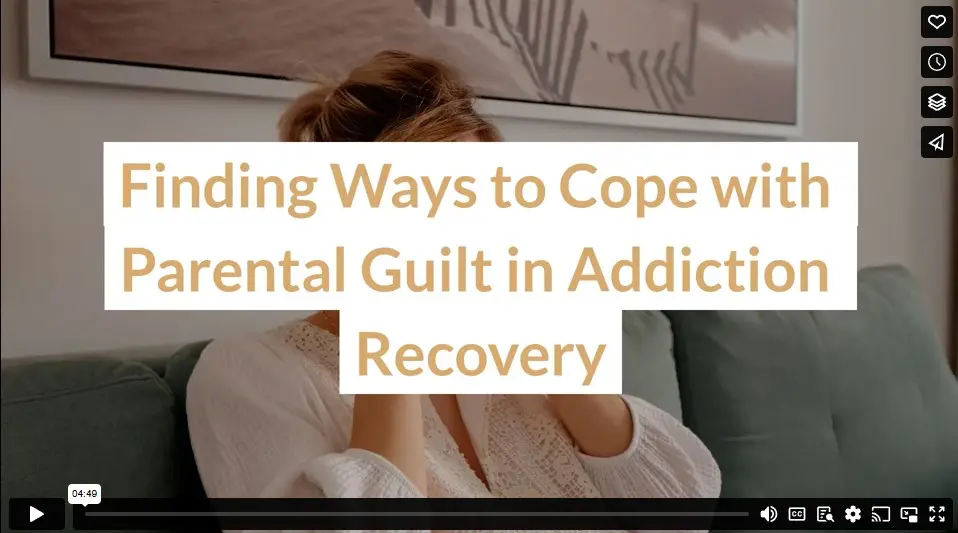Parenting is perhaps the most difficult job in the world. It’s not like the kid came with an instruction manual. Parents take their observations of other parents, their experiences as a child, and often conflicting advice from “experts” to develop strategies to keep their tiny humans alive long enough to reach adulthood.
Every child is different, so tactics that work with one child won’t always work with another. Outside influences bombard your children with negativity that can alter how they relate to you and the world around them. And being human, you have good days and bad days and days when you question every decision you’ve ever made.
With so much uncertainty, it’s natural to look inward if your children go astray. Did you give them the right guidance, enough discipline, or too much discipline? Did you protect them from the hurts of the world? When did you lose touch, and how did things get so out of hand? You feel judged by others for your child’s failings and want to hide family problems behind a wall of secrecy.
It is important to note that you are only one of many influences in your child’s life. Peer groups, media, and other social pressures often contribute to addiction by making the child feel like they don’t measure up to some arbitrary standard. Sometimes your child experiences hurts they keep hidden like bullying, rape, or other forms of physical violence.
Or perhaps your children fall into the trap of thinking the adults in their lives are exaggerating the dangers. They think they’re in control, and one time won’t hurt. They aren’t one of those people who let drugs and alcohol take over.
The bottom line is, you can’t be everywhere at once. You can try fostering open communication, talking to your kids about the dangers of addiction, and being the most supportive parents imaginable, but your child can still make bad decisions. They can still get in over their heads. Beating yourself up over their addictions is not productive.
What Do You Do?
So, what are you supposed to do if your children get addicted to drugs or alcohol? Here are some tips to find healing for you and your family.
Seek Drug and Alcohol Treatment for Dads and Moms First
If you have an alcohol or drug addiction, you need to help yourself before you will have the strength to help your child. Be the example your child needs. Show them that recovery is possible and worth the battle ahead. Your experience and support will be invaluable, and the emotional regulation and support you will gain will pass along to your child.
Stop All Enabling Behavior
It can be tempting to shelter your child from the harsh consequences of their actions by lending them money, paying their bills, letting them stay in your home, or giving them use of your car. You don’t report them when they steal from you or get abusive, rationalizing their actions.
Unfortunately, enabling them only prolongs their addiction. They have no incentives to change their behavior. They need to reach a point where it’s more painful to remain addicted than to face the process of addiction recovery.
Practice Self-Care for Better Health and Resilience
Sometimes, the stress of dealing with addiction gets overwhelming. When maxed out, you can say or do things you regret. You’ll have difficulty de-escalating situations. And you won’t have the emotional strength to support your child through recovery.
Take care of your body, your other relationships, and your soul. Seek therapy if you’re having difficulty processing your emotions or need a safe place to blow your top. When you feel stronger, you can rejoin the fight for your child’s sobriety.
Find Residential Treatment Centers Near You
If your child is under 18, enroll them in a substance abuse center that will help them safely detox and teach them better coping skills. A good center will include family counseling that will show you how best to support your child’s efforts to maintain sobriety once they get out of rehab. The staff at the center will also discover if there are other underlying causes for their addiction, such as trauma, leading to a multi-faceted approach to treatment. They can help your child address the real issues driving their behavior.
If your child is an adult, it limits your ability to intercede directly. Encourage them to seek in-patient treatment as the reset button they need to turn their lives around.
Final Thought
Your child may look for a way to blame their addiction on others rather than take responsibility for their actions. Always remember, they’re the ones who decided to take the first drink or that first hit. No matter what mistakes you have made as a parent (and what parent hasn’t?), guilt only serves one productive purpose. It makes you reflect on your actions to see if you could do better in the future. If you decide you want to make changes, do so. If you’re doing all you can, then let the guilt go and move on. Your energy is better spent elsewhere.
Video
Infographic
Parenting is one of the toughest jobs, and children don’t come with an instruction manual. If your child struggles with addiction to drugs or alcohol, check out this infographic for tips on healing for you and your family.


